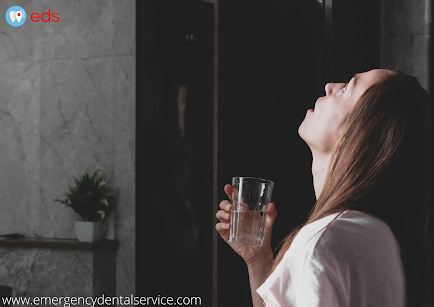Is it reasonable to swish with water after eating?
Bacteria that feed on carbohydrates and starches instantly create acids, weakening your enamel. As a result, the period immediately following a meal or drink, particularly one that is sugary, starchy, or acidic, is the most susceptible for your teeth, as per Urgent Dental Care. After eating or drinking, here are several gentler methods to clean your teeth and mouth.
- Water Swishing
Swishing water after eating and drinking soft beverages and between meals can be a safe, inexpensive, and simple way to enhance oral hygiene in impoverished nations often disregarded. Oral irrigation is an excellent alternative to manual tooth brushing and dental floss to minimize bleeding and gingival irritation. Although dental waterjets and mouthwashes are costly, vigorous water swishing with the movement of the lips, tongue, and cheeks can be a cost-effective option for maintaining good oral hygiene.
Swishing 20-30 ml of water for two to five minutes after eating or drinking soft drinks, as well as between meals, can aid in the elimination of loosened food particles, dead cells, and mucus from the mouth cavity.
- Use a mouthwash with a low PH.
Even if you didn't eat anything particularly acidic, the bacteria in your mouth would begin to convert the sugars and starches in your mouth into acid within a few minutes of starting to eat. A mouthwash with a high (alkaline) PH can neutralize these acids.
Because germs lurk behind plaque and tartar, mouthwash will not be able to reach all areas of your mouth if you have plaque or tartar. It will, however, assist in lessening the severity of the acid assault on your teeth furthermore because harmful bacteria like acids and beneficial bacteria prefer an alkaline PH. PH neutralization aids in reducing the overpopulation of harmful bacteria.
Conclusion
These are some methods for cleaning your mouth immediately after eating without risking damage to your enamel. Consult your Emergency Dentist for further advice on how to maintain your teeth as clean as possible without over brushing.

%20900-0633%20-%202025-03-12T130429.775.png)


Comments
Post a Comment